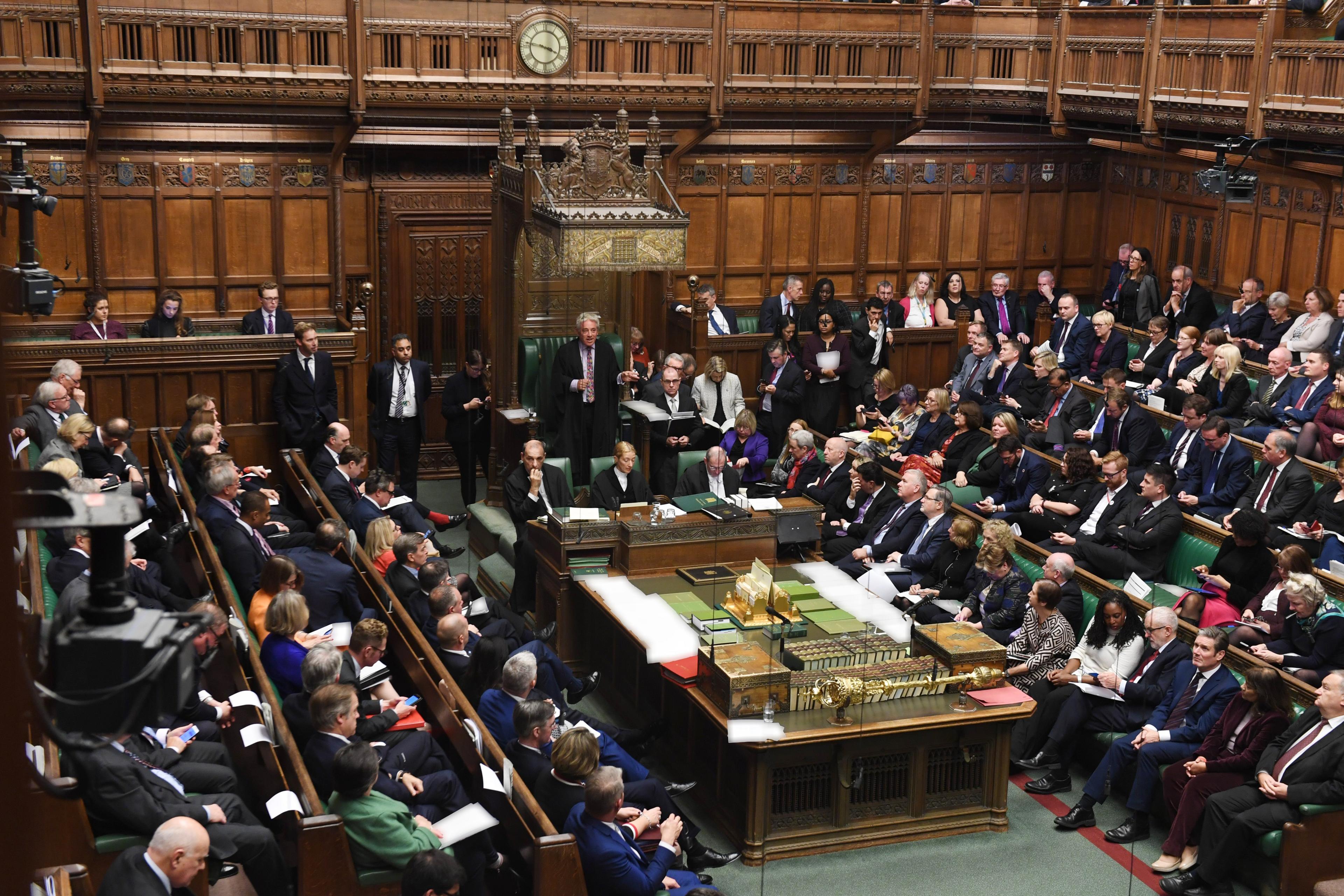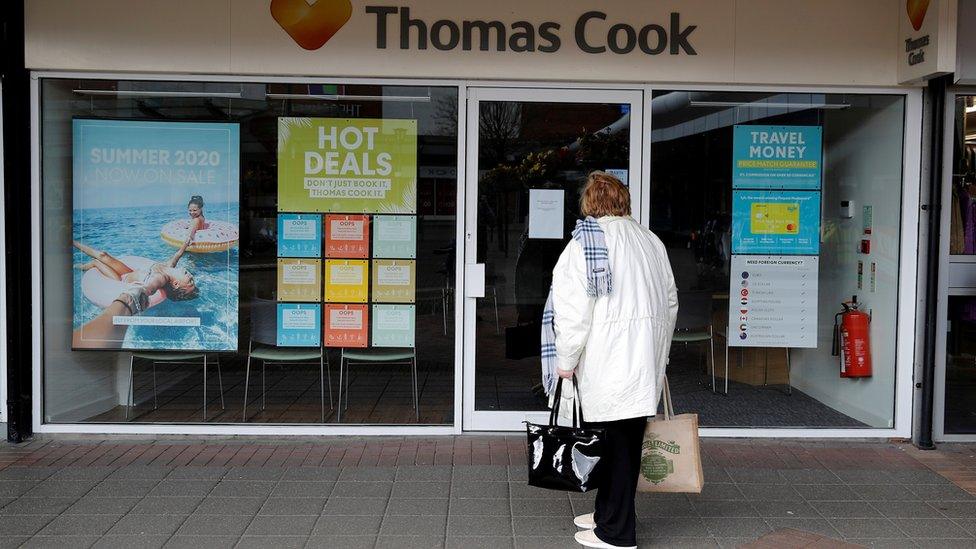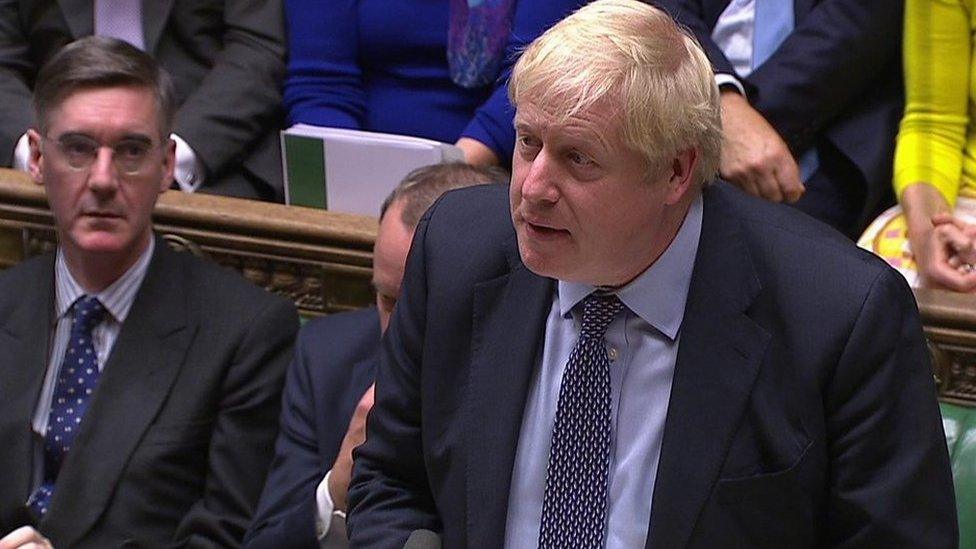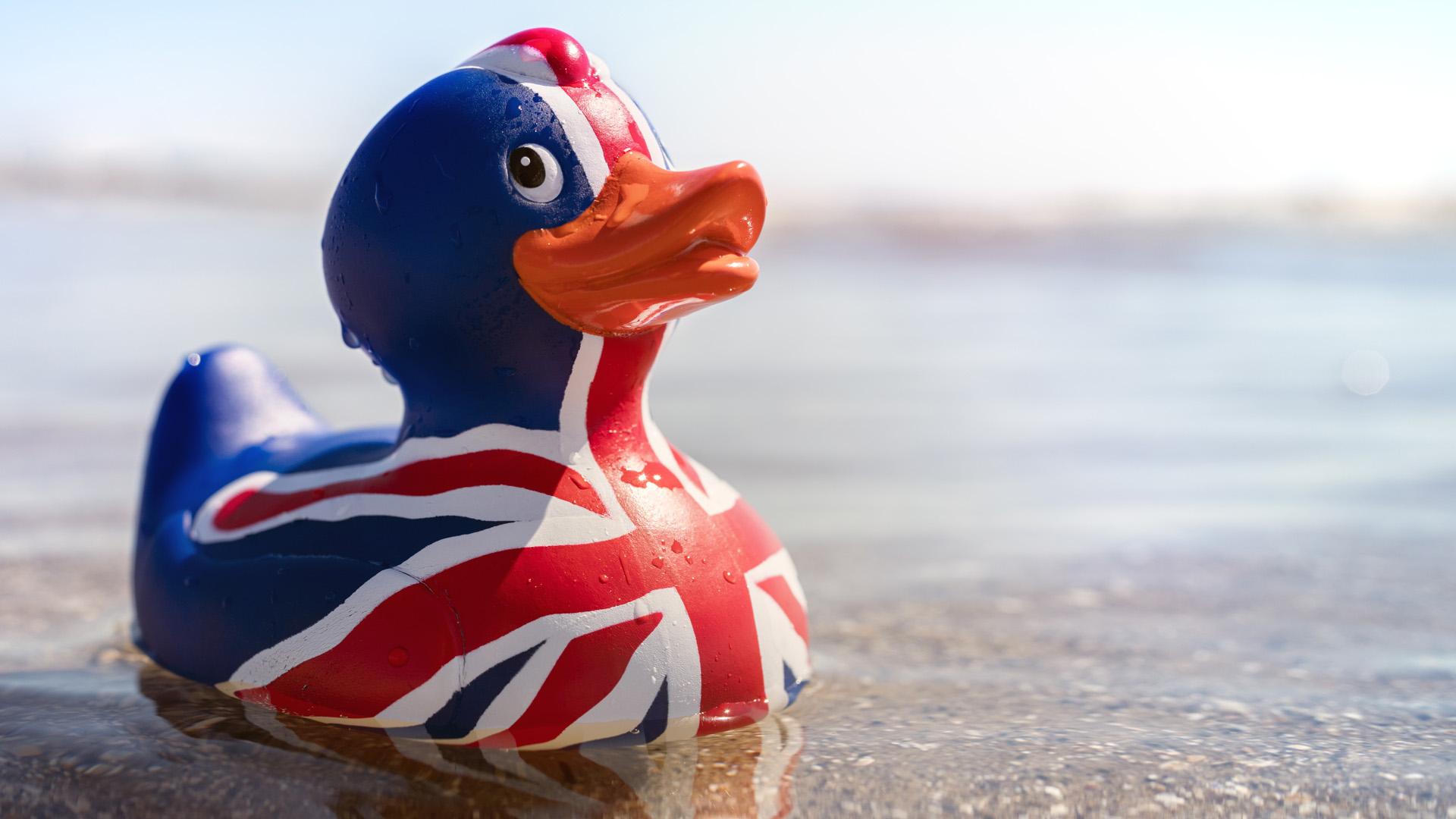Week ahead in Parliament
- Published

I don't know when last a government postponed debate on a Queen's Speech (or a King's Speech, for that matter) but ministers have abruptly re-arranged this weeks Commons agenda, with the aim of ramming the European Union (Withdrawal Agreement) Bill through the House, in three days flat.
So out go the remaining sections of the debate on the government programme, presumably to re-appear next week - and in comes what promises to be a very intense and high stakes three days of speed-legislating.
There may be a considerable battle over the programme motion which will set out the government's proposed framework for the debates on the bill, with the opposition doubtless pressing for more time to be devoted to it.
If they succeed, one side effect would be to delay the UK's departure beyond the promised date of 31 October.
But the more substantive action will be at the committee and report stages of consideration.
Expect any number of major amendments - to move to a full customs union, to hold a referendum, to give Scotland the same deal as Northern Ireland, and doubtless many other changes which ministers will resist.
Will they succeed?
The Commons Remain/soft Brexit alliance is a rather unstable grouping, riddled with conflicting agendas - and confronted with actual policy questions, as opposed to cunning procedural fixes, it may simply fall apart.
Or perhaps it can only really pull together under pressure? It took the attempted prorogation in September to bring its factions together in any effective way. The demands of speed legislating will require some speed strategising and some speed negotiation from what is really a loose confederation of warring tribes...watch this space.
Meanwhile, it's a busy week on the committee corridor, with most of the committees keen to round off existing inquiries before the music stops, and a general election is called.
Some committee action to keep an eye on is the election to the chair of the Treasury Committee - arguably the most important chair of all - where the candidates are former ministers Harriett Baldwin, Mel Stride and Mark Garnier, plus Kevin Hollinrake, the chair of the all party group on fair business banking.
All are Conservatives, because the chair of this committee has been allocated to them, under the carve-up which determines which party provides the chair for a particular committee. The vacancy was caused by the return to the cabinet of the previous chair, Nicky Morgan, now Culture Secretary.
Labour's Ian Mearns has been returned unopposed as the chair of the Backbench Business Committee - the post is now put up for election and the beginning and the mid-point of a Parliament, and is only open to MPs from the Opposition side of the Commons.
Tuesday 22 October
MPs begin their day (11:30 BST) with Business, Energy and Industrial Strategy questions.

Business, Energy and Industrial Strategy continues its probe into the collapse of Thomas Cook
Then MPs move to the second reading debate on the European Union (Withdrawal Agreement) Bill. There will doubtless be "reasoned amendments" to be voted on, but, as noted above, the programme motion could see the most significant battle - and watch out for a deluge of committee stage amendments, when the debate is completed. The order in which they're tabled can be important.
There's another packed day of select committee hearings - Public Administration and Constitutional Affairs (09:45) takes evidence on the role of Parliament in the UK constitution and the role of the Speaker, with a panel of experts including former Deputy Speaker Natascha Engel; Lord Lisvane, the former clerk of the Commons; the former Leader of the House Lord Young, and constitutional savants.
Meanwhile the Committee of Privileges (10:15) looks at select committees and contempts (the issue of the committees' power to compel witnesses such as Dominic Cummings to attend hearings).
Science and Technology (09:15) has a getting-to-know you session with the new science minister, Chris Skidmore; while Business, Energy and Industrial Strategy continues its probe into the collapse of Thomas Cook, with evidence from auditors and trade unions and the consumer group, Which?
There was some stinging criticism of auditors in previous inquiries into the collapses of BHS and Carillion, and there may be more to come.
Justice (10:00) examines the work of the prison service, with Justice Minister Lucy Frazer; while Health and Social Care (14:30) discusses NHS Capital, with Health Secretary Matt Hancock following a panel of witnesses.
Then Foreign Affairs (14:45) continues its fascinating inquiry into Autocracies and UK Foreign Policy - how Britain should interact with non-democratic states, with minister Heather Wheeler.
In the Lords (14:30) more of Theresa May's advisors become peers - Elizabeth Sanderson, the former special adviser, becomes Baroness Sanderson of Welton, and Stephen Parkinson becomes Lord Parkinson of Whitley Bay.
Questions to ministers includes the Bishop of St Albans on the impact on rural communities of Barclays Bank's decision to end Post Office cash withdrawal services. Then peers return to the Queen's Speech, focusing on health, social care, education, culture, welfare and pensions.
Wednesday 23 October
MPs open (11:30) with questions to Michael Gove, the Chancellor of the Duchy of Lancaster and Cabinet Office Minister, followed by PMQs at noon.
Then, the debate on the European Union (Withdrawal Agreement) Bill continues.

In Westminster Hall, MPs will debate government policy on TB in cattle and badgers
The day ends with a promising looking adjournment debate, led by former cabinet minister David Davis, who has returned to his role as a backbench civil liberties campaigner; the subject is the Police Service of Northern Ireland's policy on data obtained from the quashed warrants in the case of the Loughinisland journalists - who investigated the Royal Ulster Constabulary's handling of the 1994 Loughinisland killings by the UVF.
In Westminster Hall, MPs debate government policy on TB in cattle and badgers (09:30); sexual and criminal exploitation of missing looked after children (14:30); the effect of waste processing facilities on the local environment (16:00) and the reduction in the number of health visitors in England (16:30).
It's another bumper day of select committee hearings: Environment, Food and Rural Affairs (09:30) hears from the Dogs Trust, the British Veterinary Association and the RSPCA Special Operations Unit about puppy smuggling; Northern Ireland Affairs (09:30) has what promises to be an interesting encounter with new secretary of state Julian Smith; while Transport (09:45) focuses on the work of Highways England - smart motorways, anybody?
Women and Equalities (10:00) looks at the mental health of men and boys, with ministers Nick Gibb, and Nadine Dorries.
The Brexit Committee (10:00) hears from the Minister for EU Exit and No Deal Preparation, Brandon Lewis, while Education (10:00) takes evidence on adult skills and lifelong learning, and International Trade (10:00) looks at preparations at the border for post-Brexit trade with non-EU countries.
There's more scrutiny of the Thomas Cook collapse at the Business, Energy and Industrial Strategy Committee (10:00) with officials from the company and the Insolvency Service; and Scottish Affairs (10:15) looks at problem drug use in Scotland, with Crime and Policing Minister Kit Malthouse.
MPs on the Defence Committee (14:00) meet the new Defence Secretary, Ben Wallace, and Home Affairs (14:30) meet then new Home Secretary, Priti Patel, to discuss Home Office preparations for Brexit.
Finally, expect plenty of spin when Digital, Culture, Media and Sport ponder the future of English cricket (14:30) with Colin Graves of the England and Wales Cricket Board.
In the Lords (15:00) peers will consider a series of Brexit regulations including on freedom of establishment and free movement of services (there's a Labour motion to regret against this one).
Thursday 24 October
The day's first event (09:00) is the ballot (really it's closer to a raffle) for priority to bring in a private member's bill, presided over by the senior deputy speaker, Sir Lindsay Hoyle.

The prime minister is set to make his debut appearance before the Liaison Committee
The top eight or so bills get a guaranteed debating slot on a Friday morning, and this process normally touches off a frenzy of lobbying by pressure groups of every kind to sign up the winning MPs to their particular causes. This time around, with the prospect of a general election, sooner, rather than later, there may be less of a frenzy, but it is still a significant Commons moment, spawning any number of legislative sub-plots.
In the Chamber, Commons begins (09:30) with Transport questions. After the weekly business statement from the Leader of the Commons, there's what the government intends should be the final section of the debate on the European Union (Withdrawal Agreement) Bill...after which, assuming it has not somehow been derailed, it speeds off to the Lords, for debate next week.
In Westminster Hall (13:00) MPs will first discuss the Environment, Food and Rural Affairs Committee report on plastic food and drink packaging, then (15:00) tailored prevention messaging for diabetes.
But the day's biggest event looks set to be the prime minister's debut appearance (10:00) before the Liaison Committee (the super-committee of select committee chairs).
In the Lords (11:00) peers debate neighbourhood services provided by district councils and other local authorities, the situation in Syria and Iraq following Turkey's invasion and the unrest in Hong Kong and calls to offer residents of Hong Kong citizenship in another country.
Neither the Commons nor the Lords is due (as I write) to sit on Friday.
But these days, you never know.
- Published18 October 2019

